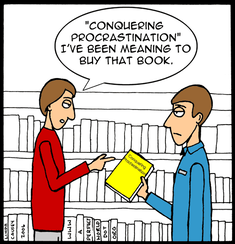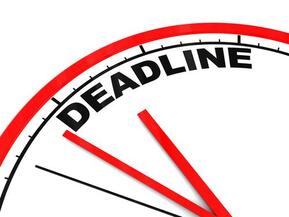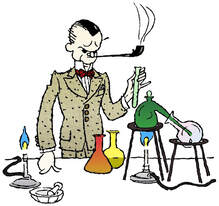 In 1742, poet Edward Young said “Procrastination is the thief of time”. Mind you, he didn’t actually get around to saying it out loud until 1743. No, that’s just my little joke. He said it in the poem “Night Thoughts on Life, Death and Immortality”. I’m not sure if authors are the worst when it comes to procrastination, but if the Selfishgenie Twitter feed is anything to go by, it certainly seems to be that way. In fact, research suggests that 95% of people procrastinate to some degree. It’s just more of a problem for some people than it is for others. Procrastination is not the same as laziness. Many procrastinators are actually highly productive; it’s just that what they produce isn’t necessarily what is important.  For example, my own favoured form of procrastination is writing blogs. Especially when I should be editing. Either that or writing wonderfully crafted letters to the media about something of great importance in the world. Some of them have even been published - but compared to what I should be doing, they aren't important. At the extreme end of the scale ADHD, OCD, anxiety and depression are all associated with procrastination. So, you could actually be harming your mental health by not doing what you know you should be doing. Procrastination definitely causes feelings of tension and stress, which are both triggers for anxiety and depression. Social media is one of the places where you will find a lot of people procrastinating. It is the ideal place for them to go. They may genuinely mean it when they say “I’ll just take a quick look, just to see what’s trending.” Then, 3 hours later, they’re still there and haven’t done a single bit of work, whatever their work may be.  There are many reasons why people procrastinate. Some believe that they work better if they are up against a deadline. Back in the old days, when I used to manage a team, I could always tell when someone produced their work right at the last minute. For a start, it was usually substandard because it hadn’t been given enough time for research, colleague input, proof reading, editing or re-writes. Or maybe I was just able to recognise the hunted look in my team member’s eyes when they saw me approaching, knowing that at any moment I might ask to see the work I’d asked them to produce a week before and was due on my desk in under an hour and they hadn’t even started it. Other people procrastinate because they think that whatever needs to be done will be challenging in some way and they want to put the task off in the hope that it will go away (it rarely does). That’s not good for an author. If you have an idea for a story, but you are putting off writing it, then you have to ask yourself if you are really cut out to be an author. If you aren’t contracted to produce a book by a certain date, then the only person who is going to suffer from any delay is you. You are bound to feel frustrated if you haven’t even made a start on it.  And if you are working to a contractually binding deadline, then re-read my observation above about work being substandard if it’s left to the last minute. I know plenty of authors who procrastinate not because they don’t want to write the story, but because they are worried that when they have finished and they try to find an agent or a publisher, no one will be interested. Or if they self-publish, no one will want to read their book. This fear puts them off finishing their work, because they don’t want to have to face that judgement. So, instead, they will re-write the same chapter (or paragraph or even sentence) time after time, telling themselves they’re trying to find perfection. But all they are really doing is putting off finishing their book.  Procrastination and perfectionism go hand in hand. Procrastination and perfectionism go hand in hand. Procrastination and perfectionism are well known to go hand in hand. The question is, does the desire for perfection lead to procrastination, or does the desire to procrastinate lead to perfectionism? What we don’t admit is that there is no such thing as ‘perfect’, but there is plenty of ‘good enough’. This is essentially fear of the unknown. The author doesn’t know how good their work is and is afraid it might not be good enough. A pessimist is more likely to procrastinate than an optimist under those circumstances. Journalist James Surowiecki said that many procrastinators are ‘self handicappers’. Rather than risk failure, they create conditions that make success impossible. I think most procrastinating authors can relate to that. Other people procrastinate because they are worried that when they have finished whatever they are doing, they won’t have anything to move onto, which will leave their lives feeling empty.  Essentially there are three types of procrastinator: those that do nothing (or hang around on social media, which amounts to the same thing), those who do something less important than what they should be doing, or those who do something that they consider to be more important. Surprisingly, getting unimportant things done and getting more important things done are both regarded as being ‘good’ forms of procrastination. By getting the unimportant stuff out of the way, we actually create time to do the more important task, without having to step away from it later to return to the mundane tasks. For example, you want to spend three hours writing, but instead you find yourself doing the laundry, preparing dinner and walking the dog. But that’s great because when you start writing, you won’t have to stop and do those things later and you can focus for three hours non-stop. Doing more important stuff, rather than sitting down and doing the thing you want to, eg writing, also works. So when you do sit down for a couple of hours to write you (a) haven’t anything more important to do that is nagging at you and (b) you can feel virtuous for getting the important stuff out of the way first. "But there are some things you can do to defeat procrastination." But is there an actual ‘cure’ for procrastination? The first thing to do is identify why you are procrastinating. I have suggested a few reasons already, but there are probably more. Only you can know why you are either delaying starting things or delaying finishing them (both are forms of procrastination). Once you have answered the “why” question, you can then start to address the issues, such as lack of confidence in your own ability. But there are some things you can do to defeat procrastination. Commit to the task. Focus on doing, not delaying. It may be helpful to set yourself a deadline for completing something. Perhaps saying “I will write 1,000 words by 4 pm.” Promise yourself a reward for completing what you set out to do. It doesn’t have to be something big, just a 10 minute break for a cup of coffee, or maybe a slice of cake with the coffee you were going to have anyway. Or perhaps 10 minutes catching-up on social media (but make sure it is just 10 minutes).  Minimise distractions Minimise distractions Re-phrase your wording. Don’t say “I need to” or “I have to”, say “I want to” or “I choose to” instead. It is far more likely that we will do the things we want to do than the things we feel we have to do. Minimise distractions. I know, more easily said than done, especially if you have family buzzing around in the background or demanding work colleagues. But there are things you can do. Log-off all social media, so it isn’t pinging away in the background, tempting you into paying it attention. Close down your emails, unplug/switch off the phone, close the door. And if you can’t escape from the family, then work at a time when the family aren’t going to be so much of a problem. For example, if you have a young child, work when the child is napping. Work when older children are at school or organise play dates for them, so they aren’t calling on your time. And tell your partner to make their own damn coffee. If a colleague is demanding attention, agree a set time to meet, when it’s convenient for you (if procrastination is the thief of time, demanding work colleagues are master criminals). If the task is a really big one, break it down into much smaller chunks. Don’t set out to write a book. Set out to write a paragraph – or even a sentence. When you have completed that, write the next paragraph and so on. John F Kennedy may have set a goal of putting a man on the Moon, but NASA actually achieved that goal by solving one small problem at a time.  Coffee based procrastination Coffee based procrastination As mentioned above, get the routine chores out of the way first – and quickly. You can then concentrate on what you want to do without feeling any guilt. Don’t turn small things into big ones. A cup of coffee really is just a cup of coffee. It doesn’t have to be made with hand ground beans which you have to slow roast first. Yes, we know those people. We may even be those people. If you want a slice of cake you don’t have to bake it, you can just buy it. You know you are procrastinating when you actually start looking for those sorts of time-wasting activities. But it all starts with knowing that you are procrastinating in the first place. If you don’t realise you are doing it, you can never hope to stop doing it. If you have enjoyed this blog, or found it informative, be sure not to miss future editions by subscribing to our newsletter. Just click on the button below - and you can also get a FREE eBook for subscribing. But don't procrastinate - do it now.
0 Comments
Leave a Reply. |
AuthorThis blog is compiled and curated by the Selfishgenie publishing team. Archives
June 2025
|
 RSS Feed
RSS Feed